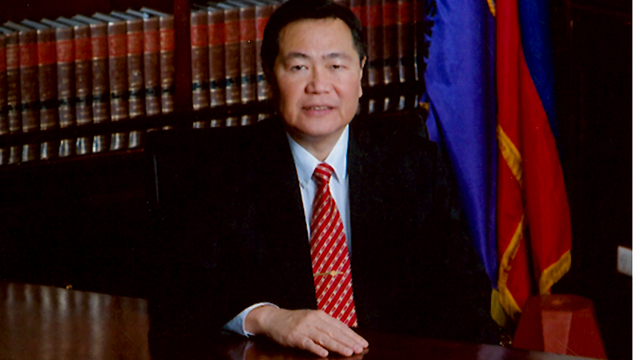
BAGUIO CITY — Supreme Court (SC) Senior Associate Justice Antonio T. Carpio on Tuesday interpellated on the coverage of the suspension order issued by the Office of the Ombudsman (Ombudsman) against Makati Mayor Jejomar Erwin “Junjun” Binay, Jr.
Carpio wanted to clarify whether the suspension order covered the administrative and criminal aspect of the complaint against Binay.
During the oral arguments, Carpio said that based on the existing jurisprudence, if the basis of the petition is the resolution of the Ombudsman in the administrative aspect of the complaint, it should be questioned before the Court of Appeals (CA) under Rule 43 of the Rules of Court.
However, Carpio said that if the center of the petition is the question on the resolution of the Ombudsman in the criminal aspect of the complaint, it should be filed before the SC.
During the interpellation, Ombudsman Conchita Carpio Morales herself said that the suspension order against Binay only covers the administrative aspect of the complaint.
Solicitor General Florin Hilbay argued that based on the existing practice of the Ombudsman, they are only imposing suspension order on administrative adjudication and not on preliminary investigation or the criminal aspect of the complaint.
However, Carpio pointed out that based on a jurisprudence in the case of “Ombudsman vs. Cordova”, the ponente or the writer of the decision ws Morales herself when she was still a magistrate of the SC, the SC said that the Ombudsman can impose a suspension order even in the criminal aspect or while the case is still undergoing preliminary investigation.
Carpio also said that based on Section 24 of the Ombudsman Act, the anti-graft body has the power to impose a suspension order while an investigation on a case is pending.
He added that the Ombudsman Act does not say that such power of the Ombudsman is only limited on administrative adjudication and the same cannot be imposed on a preliminary investigation.